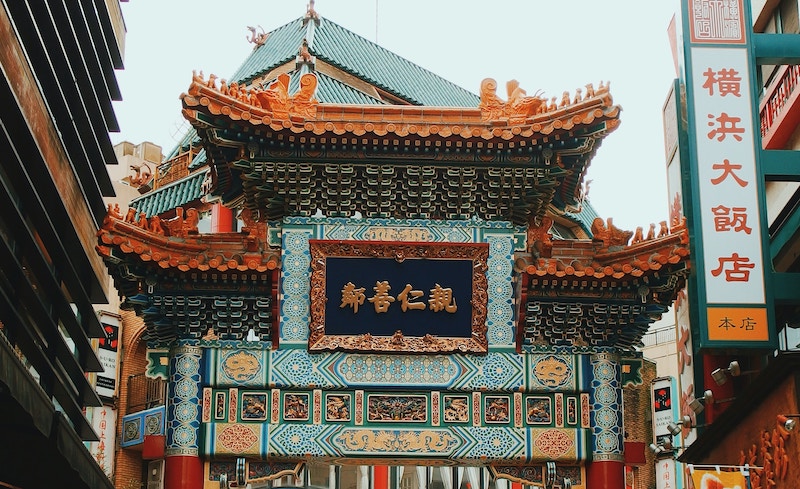From drinking tap water to encountering respiratory issues due to bad air quality, there are plenty of ways you can become sick while traveling in China. Here are some things to know to stay healthy on the road.
Due to its strict laws, authoritarian government, internet censorship, and long history of internal and international conflict, it’s understandable to ask, “Is China safe to travel?” before planning a trip.
It should go without saying that as a general rule, international travelers should always follow the laws and regulations of the Chinese government to stay out of trouble. Crime-wise, the People’s Republic of China is a fairly safe country, although there are also some health risks and safety concerns to take into consideration to ensure your personal well-being. Here’s what you need to know before you enter China.
- Staying Healthy in China
- Common Diseases Found in China
- Required China Vaccinations for US Travelers
- Medical Assistance
- Traveler Insurance
- Water and Swimming
- Traveler's Diarrhea
- Mosquitoes
- Air Quality
- Staying Safe in China
- Climate and Natural Disasters
- Local Laws in China
- Embassies and Consulates in China
- Preparing for your China Trip
Staying Healthy in China
Common Diseases Found in China
- COVID-19
- Typhoid
- Schistosomiasis
- Dengue fever
- Chikungunya
Required China Vaccinations for US Travelers
In addition to being up-to-date on your regular vaccinations, like flu, polio, shingles, and measles, the US Centers for Disease Control and Prevention (CDC) requires or recommends the following vaccinations for entry to China:
- COVID-19: Highly recommended
- Cholera: Recommended
- Hepatitis A: Recommended for unvaccinated travelers older than one year and infants ages six to 11 months
- Hepatitis B: Recommended for unvaccinated travelers ages 60 or older
- Yellow fever: Required if coming from known yellow fever–infected country or region
- Japanese encephalitis: Recommended if coming from infected area
- Rabies: Recommended
- Typhoid: Recommended
- Tick-borne Encephalitis: Recommended
You should get any recommended or required vaccinations at least a month before you visit China.
Medical Assistance
If you find yourself in need of medical treatment during your time in China, you’ll have several choices. You’ll find plenty of hospitals and other healthcare options in most major cities, like Beijing, Shanghai, and Guangzhou, where the hospitals are more likely to have the best medical facilities, equipment, and quality of care. You’re also more likely to find staff and doctors who speak English well.
Outside of urban areas, both the availability and quality of medical services may be lacking. The cost of going to see a doctor or going to the hospital can vary widely in rural areas. In public hospitals, where the quality of care may not be the best, seeing the doctor can cost as little as US$12. However, a visit to a private hospital that offers better quality care and English-speaking doctors can cost several hundred dollars.
If you’re having a medical emergency, call 119. This is the China emergency number and connects you to emergency resources like ambulances, police, and the fire department. However, it’s important to note that most ambulances don’t have top-notch medical equipment or the best-trained staff, so the US Embassy recommends that foreigners in need of medical treatment take a taxi or other transportation option to the hospital.
Traveler Insurance
While medical care in China is available and in some cases can be quite affordable, it doesn’t hurt to have extra coverage. Travel insurance companies like battleface, Allianz, World Nomads, and HTH Worldwide offer a range of plans that you can customize to your needs.
Along with healthcare coverage from unexpected medical expenses while traveling abroad, including medical evacuation, travel insurance can also cover you in the event of delays or cancellations. It can also help with recovering costs if you get robbed.
One important thing to be aware of, though, is that many hospitals in China won’t accept US health insurance. The US Embassy highly recommends that you confirm coverage with your provider beforehand and get a list of hospitals and medical facilities that will accept your insurance before traveling.
Water and Swimming
Apart from Hong Kong, tap water in China is generally not safe to drink. Stick to bottled water and avoid consuming tap water, including when brushing your teeth. Fresh fresh fruits or vegetables are a key part of the Chinese diet, but you should avoid any that may have been washed in tap water—only eat thoroughly cooked food or foods you can peel.
Swimming-wise, chlorinated pools are fine, but you should avoid taking a dip in freshwater lakes, rivers, and ponds, as it puts you at risk of contracting schistosomiasis.
Traveler's Diarrhea
Traveler’s diarrhea can be a common issue for tourists, due to undercooked food or drinking tap water. To prevent it, be conscious of your eating habits: Avoid consuming untreated water, uncooked or undercooked foods, and unpeeled fruits and vegetables. Carry antidiarrheal medication, rehydration salts, and probiotics in case you do get sick.
Mosquitoes
Mosquitoes are largely only an issue in rural parts of China, and China has even been taking action to reduce the mosquito population. Even though China has been declared malaria-free, travelers should still be wary of other insect-borne diseases, like dengue fever and chikungunya. You’ll want to take steps to protect yourself. Carry and use mosquito repellent, wear long sleeves and long pants, and sleep under a mosquito net at night.
Air Quality
One of the biggest health concerns travelers will encounter in China is the air quality. Air pollution is a huge issue in China, with many cities in China experiencing high levels of air pollution. This can be particularly problematic for individuals with respiratory issues.
Before going out exploring each day, use AQI or check the PRC’s own data via the Ministry of Ecology and Environment to check the report for your area. If the quality is bad, avoid being outdoors for long periods of time or wear a mask if you need to be out and about.
Staying Safe in China
Here’s what a traveler from a foreign country should know about staying safe in China.
Crime in China
Violent crime isn’t a major issue in China, but petty crimes like pickpocketing, scamming, and mugging can take place in major cities and around tourist attractions. In major Chinese cities, like Beijing, Shanghai, and Hong Kong, be wary of pickpocketing in large crowds, at major tourist sites, and around international hotels.
You should also be alert to common scams, like the teahouse scam, where you’ll be approached on the street by a local asking if you’d like to experience a teahouse ceremony before presenting you with an exorbitant bill worth hundreds or thousands at the end. Fake beggars are another common scam, as well as the arthouse scam (similar to the teahouse scam). Visitors should also be wary of the “black cab” scam at airports, as these are unlicensed.
Exercise common sense and keep yourself safe from petty crime in China by:
- Staying in busy, well-lit areas of major cities
- Avoiding badly lit and unfamiliar areas at night, particularly in the company of strangers
- Refraining from carrying large amounts of cash or valuable belongings on your person
- Not leaving any valuables unattended
- Being aware of your surroundings, especially on public transport
Crime against Women
Women can generally feel safe traveling around China, but it’s still possible to experience street harassment. Women visiting China should take standard precautionary measures like being aware of their surroundings, avoiding strange areas at night, and never leaving food or drink unattended.
LGBTQ+ Safety
Violence against LGBTQ+ individuals is very rare, but members of the LGBTQ+ community should still keep a low profile and be discrete while traveling. In general, Chinese people are tolerant or indifferent to the LGBTQ+ community, and some cities, like Beijing, even have robust gay scenes. But it’s still important to not draw too much attention to yourself, especially as the LGBTQ+ community does not have any legal protections in China.
Civil Unrest
Civil unrest is a common occurrence here, especially with citizens pushing back against strict government rulings or mandates. These typically take the form of demonstrations, which can turn into riots or become violent once local authorities get involved.
Stay alert to potential civil unrest during your travels by reading local news. Monitor local media for the most up-to-date information, and if strikes or riots do take place in the region you’re visiting, stay well away from the affected areas and stay indoors. It’s also strongly advised to avoid demonstrations or protests, as Chinese authorities could misinterpret your presence as participation and/or endangering national security, potentially leading to arrest and legal issues.
Terrorism
Due to China’s firm authority and strict laws, the risk of terrorist attacks during your visit is low. But there are some areas where it’s a possibility.
The most prevalent is the Xinjiang Uyghur autonomous region in northwestern China, which is home to the Turkic Uyghurs and many other minority ethnic groups. As many Uyghurs are Muslim, several separatist and militant groups, like the East Turkistan Islamic Movement, have carried out terrorist activities in retaliation against the Chinese state.
The Chinese government has also been detaining Uyghur and Turkic Muslims in prison camps since 2017. Due to the increased military presence in the Xinjiang Uyghur autonomous region, extreme caution should be taken when traveling through the area. Travelers can find themselves subject to curfews, surveillance, restrictions, discrimination, and detention.
You should also avoid or take extra precautions when traveling around the Tibet autonomous region, as violent clashes can take place between Chinese authorities and Tibetan independence fighters.
To avoid terrorist attacks and stay safe if one occurs:
- Stay informed of local news and events
- Check with your country’s embassy or state department regarding travel restrictions and alerts
- Avoid strikes, protests, demonstrations, and riots
- Stay indoors and safe during attacks
- Know where to find the nearest police station or local public security bureau
Know how to contact emergency services and your country’s embassy
Climate and Natural Disasters
Depending on where you’re traveling in China, you may encounter natural disasters. From July to September, the southern and eastern coasts of China frequently experience strong tropical storms and typhoons. Flooding can also occur during the rainy season, which varies depending on where you’re traveling in China. Earthquakes and landslides (which are typically a result of flooding or too much rain) are concerns as well.
While traveling around China, monitor local media and weather reports to avoid disaster areas. If you do find yourself experiencing a natural disaster, follow instructions from local authorities and contact your country’s embassy as soon as possible.
Local Laws in China
Chinese law can come with harsh punishments , so it’s important to be aware of the local rules and regulations—including those regarding smoking in public, driving a car, bringing in foreign currency, random drug tests, photography, and Internet usage—to avoid trouble with the Chinese government. Violations can result in fines, arrest, deportation, or even an exit ban, particularly in matters of national security.
Embassies and Consulates in China
Diplomatic missions aren’t just for matters of foreign affairs; they also offer consular assistance and consular services to foreign nationals in case of emergency. If you need to replace a valid visa, for example, or wind up in legal trouble over a positive drug test, contact your country’s embassy or consulate immediately. While they won’t be able to offer legal advice, they can direct you on what to do next.
Preparing for your China Trip
Obtaining a visa is an essential part of planning your trip. At Entriva, we can easily and efficiently help you with every aspect of getting a China visa. Start your visa application process.
For more information on other aspects of travel to China, including travel requirements, visa extensions, and culture and traditions, visit our China content hub.





